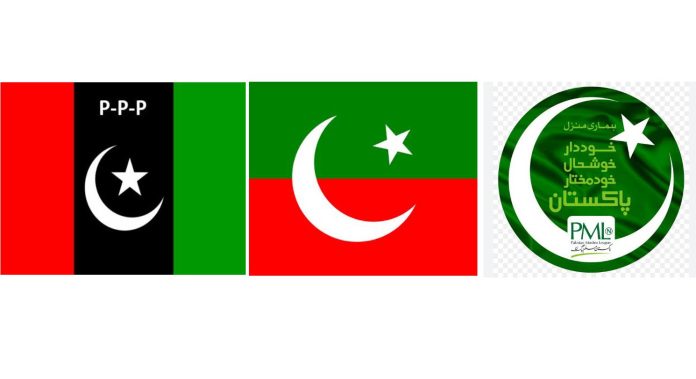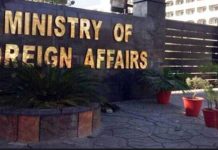PPP scored zero in 17 indicators, PTI in 13 and PML-N in 12
Mahnoor Ansar
Islamabad, NOV 6 /DNA/ – In the wake of upcoming general elections, the Pakistan Institute of Development Economics (PIDE) has drawn a comparison of manifestos amongst three mainstream political parties – Pakistan Muslim League Nawaz (PML-N), Pakistan Peoples Party (PPP) and Pakistan Tekreek-e-Insaaf (PTI) – that have been front-runners in formulating governments during the last three tenures. The aim was to evaluate if the manifestoes have any substance and concrete plan or are these just comprise hollow promises and sweeping statements, without any homework for the future.
In this regard, PIDE has been proposing reforms in various dimensions for quite a long time. These targeted reform proposals are based on years of research and evidence and are in line with the global best practices. So, PIDE has picked 18 key issues/sectors that it thinks are fundamental. These include: local government, parliament, elections, cabinet, police, bureaucracy, budget making, debt management, PSDP, real estate, agriculture, energy, taxation, tariff, trade, state-owned enterprises (SOEs) and internet. Each indicator has a maximum of 100 score.
· PPP scored zero in 17 indicators, PTI in 13 and PML-N in 12.
· Overall, the three major political parties scored less than 20%, which means that they talk about or have some solid ideas about only 20% of the key economic and policy issues of Pakistan.
· Further dissecting the figure 20% tells us out of the country’s key issues, only 12% of these find space in the PML-N manifesto, 7% in the PPP manifesto and 1.5% in PTI.
· This demonstrates that manifestoes don’t have any substance at large on key issues of the nation.
· This means that political parties don’t have any concrete blueprint to work on if they come into power.
· The lack of substance in manifestoes leads to a myopic approach to governance, ad-hocism and serving vested interests only, without any regard for doing something for the long-term development of the country.
· For instance, strengthening local government is merely a promise and scored as zero. In contrast, allowing the property tax regime to serve as the primary revenue generator for local government is a concrete point. Thus, this point had been given a 25 score.
How did PIDE arrive at such a score? PIDE summarized its proposals in four points for each theme, having equal weightage for each point i.e. 25%, making it 100% for all four points. It then compared it with what each political party proposes against the same theme. If the manifestoes propose one of the points that PIDE proposes then the score will be 25/100 and if their proposals include all that PIDE proposes, then that manifesto will get full marks i.e. 100/100. It is pertinent to note that, manifestoes are being evaluated on actual reform intervention, not mere promises, slogans and sweeping statements.
Besides, the Institute, in another research product, has also compared if there is any convergence between what is mentioned in manifestoes and the digital narratives by the party leaders. The stark disparity between pre-election promises and the reality of online discourse in the post-election landscape, as unveiled by the Pakistan Institute of Development Economics (PIDE), reveals a critical disconnect. PIDE’s analysis reveals a concerning neglect of fundamental issues like economic disparities, infrastructure, unemployment, education, healthcare, governance, corruption, security, environment, and human rights on digital narratives by party leaders, which are pivotal for the country’s progress.
Twitter, identified as a significant influencer in shaping political conversations, remains largely underutilized in addressing Pakistan’s socio-economic challenges. Leveraging Latent Dirichlet Allocation (LDA) to analyze afore mentioned party leaders’ tweets from 2018-2022, PIDE found no convergence between the vision chalked out in manifestoes and the propagation or discourse on Twitter.
The comprehensive analysis shed light on a worrying trend in the online discourse of opposition leaders:
· PPP and PML-N leadership focused mostly on family legacies and political conflicts
· PTI’s leader’s discussions primarily revolved around Indian-occupied Jammu and Kashmir overshadowing other essential national concerns
· This underlines the lack of focus as well as commitment from the country’s top political leadership.
PIDE’s call for realigning political discourse with manifesto commitments echoes the urgency for leaders to prioritize substantive policy matters for Pakistan’s development and prosperity. Manifestoes shouldn’t remain as mere paper promises; they should guide the nation’s trajectory, providing a clear roadmap for governing parties and feasible policy alternatives for the opposition.
The institute stresses the need to shift conversations from personal grievances, familial legacies and political mudslinging to tangible policy matters, urging leaders to re-center discussions and leverage social media tools like Twitter for more focused, relevant, and policy-based communication, to address the perpetual challenges faced by Pakistan.

















